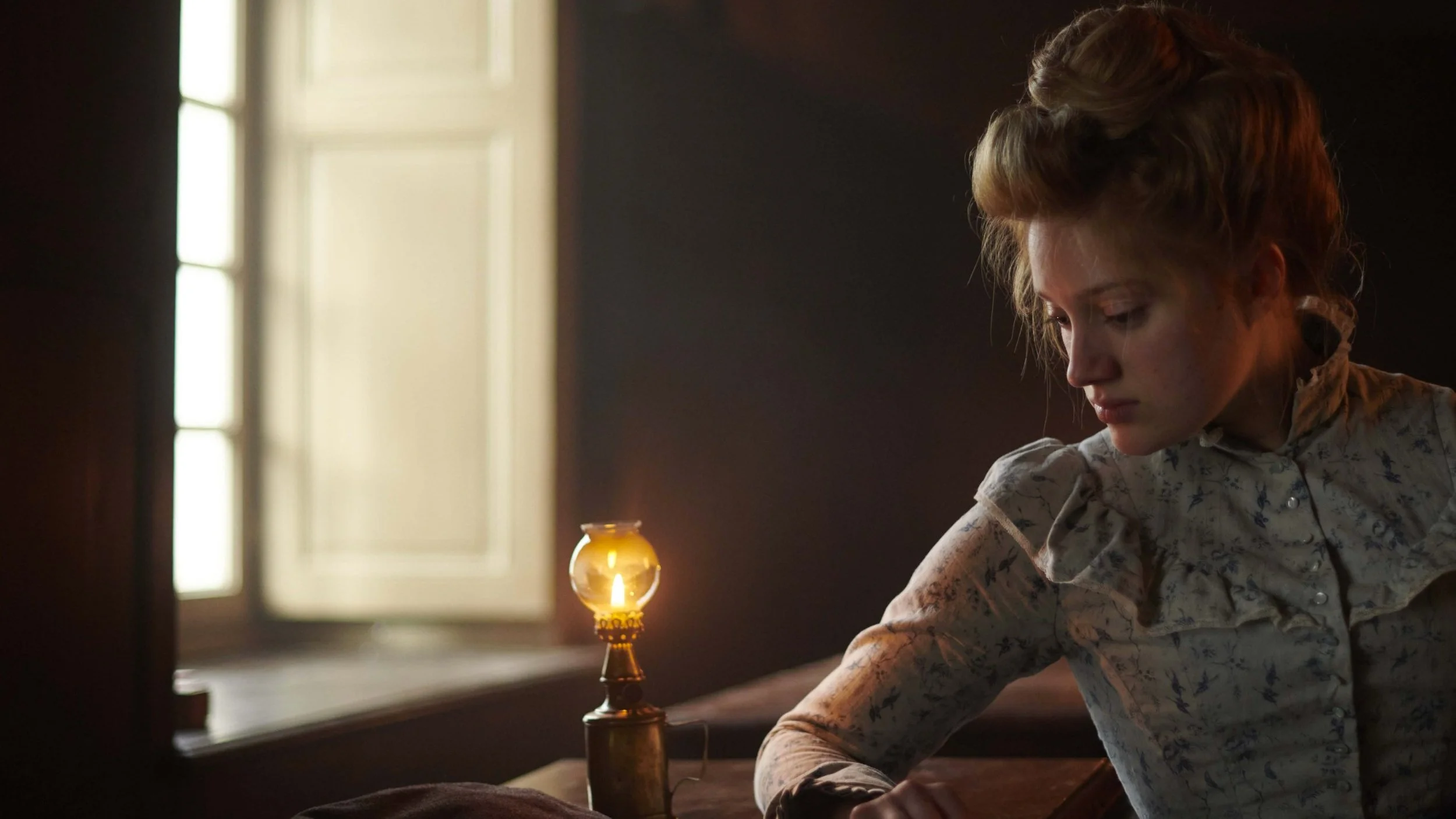Rosalie
A new star is born in Stéphanie Di Giusto’s period French drama inspired by a true story.
For her second feature film the French director Stéphanie Di Giusto has turned to history but given herself a free hand in that the characters in her tale are fictitious. Nevertheless, inspiration for this work came from the life of Clémentine Delait. She was a bearded lady born in Lorraine in 1865 who became a celebrity proud of her condition and quite ready to go on tour and to be seen by the masses. In point of fact a few details in Rosalie are borrowed directly from Delait’s life, but for the most part this is an invented narrative set in Northern France in the 1870s.
The film starts when Rosalie, played by Nadia Tereszkiewicz and now well into her twenties, is brought by her father, Paul (Gustave Kevern), to the home of Abel Deluc (Benoît Magimel). Paul is offering a dowry which he has saved up and which Abel is eager to take since he is in debt to the local factory owner, Barcelin (Benjamin Biolay). That is perhaps a large part of his motivation in accepting her as a bride since he had not picked her out even though she looks attractive enough. But in fact Paul is doing the best he can for Rosalie and is taking advantage of Abel. The truth of the matter is that Rosalie has been born hirsute and only by regularly shaving her face has her father covered up that fact. Not surprisingly when Abel discovers his wife’s condition on their wedding night he is outraged and his first reaction is to send her away. But in the event, they form a bond that is at least companionable and, if we can anticipate that their feelings for one another will grow, the big question is how the community around them will react when they realise that they have in their midst somebody akin to those bearded women who can be found in sideshows.
One senses that Di Giusto as the main writer here is seeking to give the film modern resonance but without sacrificing the bona fide period sense. A pre-credit sequence feels abrupt in its editing, but the film settles into being an ably realised period piece to appeal to audiences drawn to that genre. There are no distracting touches that intrude on that, but at the same time the subject matter is centred on the need to accept people who do not conform to what society brands as normal. Similarly, the film’s portrait of Rosalie is of a strong- minded woman who stands up for herself and refuses to accept her appearance as something that must be concealed and of which she should be ashamed. These themes provide an obvious link to attitudes widely approved today but not in the past and that happens naturally without anything feeling forced. If that aids the film so do the leading players. Magimel is always a reliable presence as he reminded us recently in The Taste of Things but the film really belongs to Tereszkiewicz. Although she has been in films since 2015, I do not recall seeing her before but as Rosalie she gives a highly engaging and sensitive performance. There is also a useful music score by Hania Rani.
But, while these assets might have yielded a really good film, Rosalie increasingly shows weaknesses that limit its effectiveness. Rather ironically since Di Giusto had opted for a style that gave her freedom of dramatic invention it is the writing that is primarily at fault. Several subsidiary characters are not sufficiently fleshed out while the factory owner is just a standard figure to earn the dislike of the audience. Furthermore, despite the film lasting nearly two hours, the narrative often requires more detail than we get. One example is when Rosalie seeks to help the couple’s finances by making a bet with Jean (Eugène Marose). The bet is that if unshaven her face will become bearded within a month and Abel calls for her to stop the growth but without any further comment, we see that she goes ahead with it. Then again, although a fire is involved, the film fails to convince us that virtually the whole community having come to accept Rosalie would then suddenly turn against her en masse. It's also key to the story development that Rosalie, having taken to selling photographs of her bearded self, also agrees to being photographed in a saucy pose which is widely criticised. It seems unlikely that Rosalie would choose to do this in the light of attitudes in the 1870s and one wonders if in this instance at least it happens because Di Giusto wanted to add a 21st century touch by allowing her heroine to embrace being sensual.
However, if these successive doubts start to undermine the film, it is the ending of Rosalie that I found the least effective part of it. The film suddenly goes for a big melodramatic climax which should have emotional power but which merely feels out of keeping with the tone of the narrative up to that point. However, if Rosalie does nothing else it does confirm that Nadia Tereszkiewicz has star quality.
MANSEL STIMPSON
Cast: Nadia Tereszkiewicz, Benoît Magimel, Benjamin Biolay, Guillaume Gouix, Gustave Kervern, Anna Biolay, Eugène Marcuse, Juliette Armanet, Serge Bozon, Peri Bourgogne, Lucas Englander, Aurélia Petit.
Dir Stéphanie Di Giusto, Pro Alain Attal, Screenplay Stéphane Di Giusto and Sandrine Le Consumer, from a treatment by Sandrine Le Coustumer and Alexandra Echkenazi, Ph Christos Voudouris, Pro Des Laurent Ott, Ed Nassim Gordji-Tehrani, Music Hania Rani, Costumes Madeline Fontaine.
Trésor Films/Gaumont/Laurent Dassault Pont-Point/Artémis Films/Canal+/Ciné+-Picturehouse Entertainment.
115 mins. France/Belgium. 2024. UK Rel: 7 June 2024. Cert. 15.


